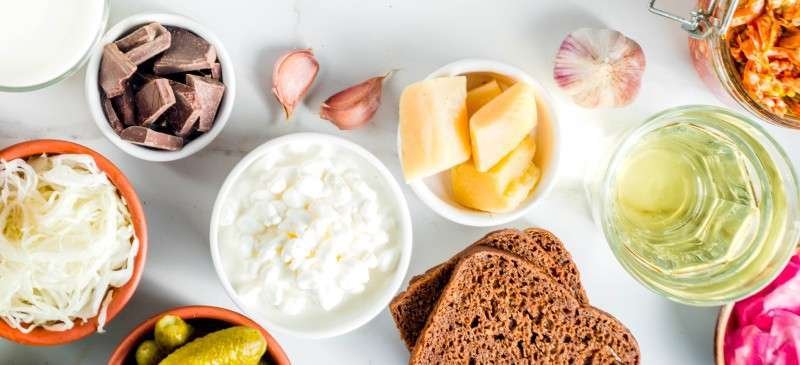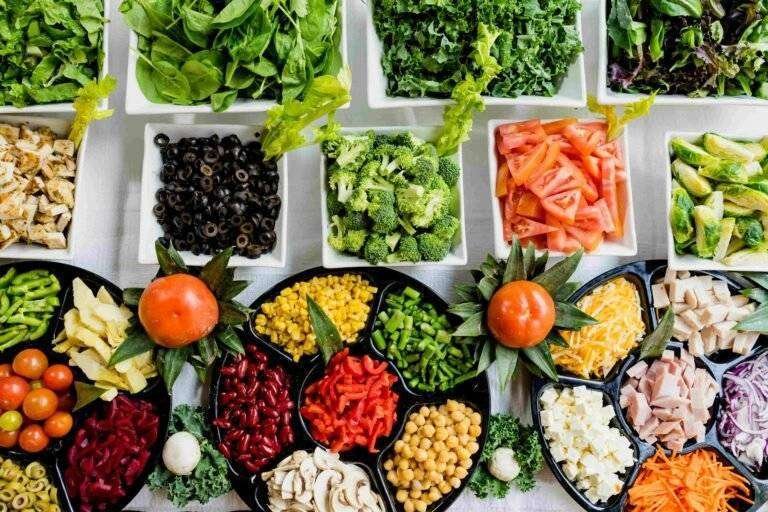Eat Your Way to Better Health Probiotic Foods You Need in Your Diet
Introduction
This is something you should know in this nutrition-conscious world: It makes a difference when it comes to eating probiotic foods. In this complete guide, we will discuss 32 critical probiotic foods that improve gut health and immune system function with essential tips for a healthier diet.

The Low-down On Probiotic Foods
Probiotics are beneficial bacteria responsible for the efficiency and welfare of the digestive system. They counteract the damage done by a crappy diet, antibiotics, and stress so that you digest things better, your immune function improves, and inflammation lessens.
Most Important Probiotic Foods You Should Include In Your Daily Diet
Eating a regular diet high in foods that naturally contain probiotics is key to keeping your gut flora at an optimal level. Here are some top choices:
1. Yogurt
Good bacteria, such as the live cultures in yogurt (hello lactic acid and all you helpful bifidobacteria) are very good for your digestive system. This way you can avoid the added sugars and benefit from this healthy option.
2. Kefir
It is an amazing fermented milk drink that resembles yogurt but a tastier and contains different kinds of healthful bacteria. Drinking kefir regularly can help activate your gut to have increased flora diversity.

3. Sauerkraut
A powerhouse of probiotics, fiber, and vitamins, sauerkraut is fermented cabbage that promotes digestive health. In addition, Asparagus contains lots of Vitamin C to boost the immune system.
4. Kimchi
A Korean dish of fermented vegetables such as cabbage and radish seasoned with chili peppers, it is an ideal source of garlic. It has positive effects on cardiovascular and digestive health as it is joyful.
5. Tempeh
Also a patty, but one made from fermented soybeans (a staple in our house) which gives Tempeh its firm texture and flavor that many vegetarians love. It is also rich in vitamin B12.
6. Miso
Miso is a traditional Japanese seasoning made by fermenting soybeans and sometimes rice or barley with salt as well as fungi (koji). This seasoning is found in miso soup and provides many necessary nutrients. This and its nutritional profile, as well of course that rich flavor means it finds a home in both soups but can also be used with various other dishes such sauces or marinades.
7. Pickled Vegetables
Fermented pickles also help to repopulate healthy bacteria in the gut and are heavy hitters when it comes to probiotics. They improve your immune system and support gut health (unlike non-fermented foods).
8. Traditional Buttermilk
This is usually called the traditional or actually “grandma’s probiotic,” because it was traditionally what you would have drank — butter milk — which literally means leftover liquid from making some (literal) gooofy try this in certain mud pots and there are still very hobbity cow anymore after handwringer but they do make crows go half-scared.
Tips on Finding the Right Probiotic and 3 Ways to Add Them Into Your Life
There are simple and tasty ways to incorporate probiotics into your diet. Try having some yogurt or kefir when you wake up. Put sauerkraut or kimchi in your sandwiches or during lunch include them as a side dish. Dinner: Miso soup (warming + probiotic rich starter)
Adjusting to Probiotic Foods
While including probiotics, it is better to start with smaller amounts of such foods. For some, a mild digestive upset may occur in the first few days as your body acclimates to higher levels of bacteria. Taking baby steps might help in this regard.

Faqs
What Are Probiotic Foods, and Why Should They Be Part of a Healthy Diet?
Probiotic foods are rich in beneficial bacteria that promote a balanced gut microbiome. They improve digestion, support immune function, and may even aid mental health.
What Are the Top Probiotic Foods to Include for Better Health?
The best probiotic foods include yogurt, kefir, kimchi, sauerkraut, miso, and kombucha. Each of these foods contains live cultures that help replenish the beneficial bacteria in your gut, contributing to better digestion, immune health, and nutrient absorption.
How Often Should I Consume Probiotic Foods to Experience Health Benefits?
For maximum benefits, it’s recommended to consume probiotic foods daily. A single serving of probiotic-rich foods, like a cup of yogurt or a few tablespoons of sauerkraut, can help maintain a balanced gut environment and improve digestive health over time.
Can Probiotic Foods Help with Specific Digestive Issues Like Bloating or IBS?
Yes, probiotic foods can help alleviate symptoms of digestive issues such as bloating, irritable bowel syndrome (IBS), and constipation. By introducing beneficial bacteria, probiotics restore balance to the gut flora, potentially reducing uncomfortable symptoms and promoting regular digestion.
Are There Non-Dairy Probiotic Foods for Those with Lactose Intolerance or Dairy Allergies?
Absolutely! Non-dairy probiotic foods like kimchi, sauerkraut, miso, and certain non-dairy yogurts provide similar gut-health benefits without dairy. These options are ideal for those with lactose intolerance or dairy allergies, offering the same probiotic boost without compromising dietary restrictions.
Conclusion
Adopting a diet that includes plenty of probiotic foods can help with digestive and immune health far greater than any supplement ever would. Incorporate these foods into your diet and you will be doing great things for both your gut health as well as other aspects of physical wellness.
Read More: Enhancing Immune Function Naturally Effective Strategies for a Stronger Immunity






